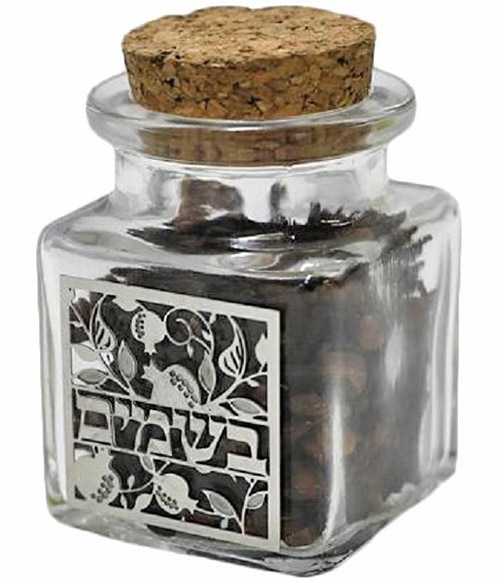
May these words of Torah serve as a merit le’iluy nishmat Meira Chaya Nechama Beracha, a”h, bat David Mordechai, sheyichyeh.
If he mistakenly said Shehakol before smelling besamim, does he need a new blessing?
Tosafot on our daf propose that the blessing of Shehakol could work for a fine aroma. Our Gemara teaches about the blessings recited before smelling items with a naturally pleasing aroma. The Gemara teaches that for the aroma that emerges from the burning of incense wood, a blessing of Borei Minei Besamim should be recited (since the aroma only started once the wood was gone) and a man who smells a myrtle branch is to recite the blessing of Borei Atzei Besamim. Tosafot (s.v. Ve’al Hahadas) discusses a person who is walking through a home that contains multiple items that produce pleasing smells and he is unsure if these items are products of trees or the ground. Tosafot writes that some say he should recite the blessing of Shehakol Nihyeh B’dvaro, and Rav Moshe of Coucy said the man should recite the blessing of Borei Minei Besamim. What would the law be if a person chose to try to act as per the opinion quoted in Tosafot and he recited the blessing of Shehakol for a sweet-smelling item?
Shulchan Aruch (Orach Chaim 216:2) writes that the blessing of Borei Minei Besamim works for all items with a nice fragrance, and therefore when you are unsure which blessing is in order for a sweet-smelling item you should recite Borei Minei Besamim. Shulchan Aruch adds that if a person said Shehakol Nihyeh B’dvaro before an item with a pleasant smell, it is possible that he fulfilled his obligation. Mishnah Berurah (216:13) explains that some Acharonim argue that if Shehakol is a fitting blessing for ingesting food, an activity that provides much pleasure, certainly it is an acceptable blessing for the enjoyment of a nice smell, which only provides a small amount of delight. Magein Giborim disagrees. He argues that the sages never composed the blessing of Shehakol for smells. This blessing was composed for eating food and therefore it would not work for any besamim.
Rav Zilberstein argues that perhaps the Magein Giborim is correct. There is a difference between the joy of eating and the joy of a nice smell. Gemara Sanhedrin (93b) teaches that Mashiach will not judge based on what his eyes see or what his ears hear. He will judge based on his power of smell. Maharsha explains that the sense of smell is a spiritual force, while the powers of sight and hearing are more physical. Since the sense of smell is spiritual, judgment based on the power of smell is more blessed and it will not produce errors. Regular judges who utilize the physical senses of sight and hearing are using material forces and they often make mistakes. Our daf teaches that the verse (Tehillim 150:9) “Kol haneshamah tehalel Kah—Every soul will praise the Almighty” refers to the obligation to praise Hashem for nice smells, for the matter that the soul enjoys and that the body does not enjoy is pleasant aromas. The blessing of Shehakol was instituted for all items that a person eats, for a physical enjoyment; since smell is spiritual perhaps it is not included in the blessing of Shehakol. Practically, if a person mistakenly said Shehakol for a spice, he should drink some water and listen to someone else say Borei Minei Besamim on the spice before he smells it. (Chashukei Chemed)
Rabbi Zev Reichman teaches Daf Yomi in his shul, East Hill Synagogue.










